Food Organics Garden Organics (FOGO)
To support the recovery targets set out in the State’s Waste Avoidance and Recovery Strategy, all Local Governments within Perth and the Peel region are being supported to adopt a three-bin FOGO system by 2025.
In addition to the above, the EMRC also developed a Food Organics & Garden Organics FOGO Recovery Strategy, which Council endorsed in 2019 (https://www.emrc.org.au/operations-and-projects/fogo-food-organics-and-garden-organics/fogo.aspx) to help guide the EMRC’s FOGO roll out in conjunction with its member Councils.
EMRC FOGO Strategy
Of the EMRC member Councils, the Town of Bassendean and the City of Bayswater has already transitioned to the FOGO system. The EMRC assisted with the implementation and continues to support our Councils via community engagement and educational materials. The following service offerings are available to help Councils with a smooth and successful transition:
- Bin tagging
- Communication and engagement template
- Assist at staff/community education events
- Rollout advice – including messaging and design of collateral. Access to “Lessons Learnt” from previous Council rollouts.
For more information on how we can assist, please email WasteEducation@emrc.org.au .
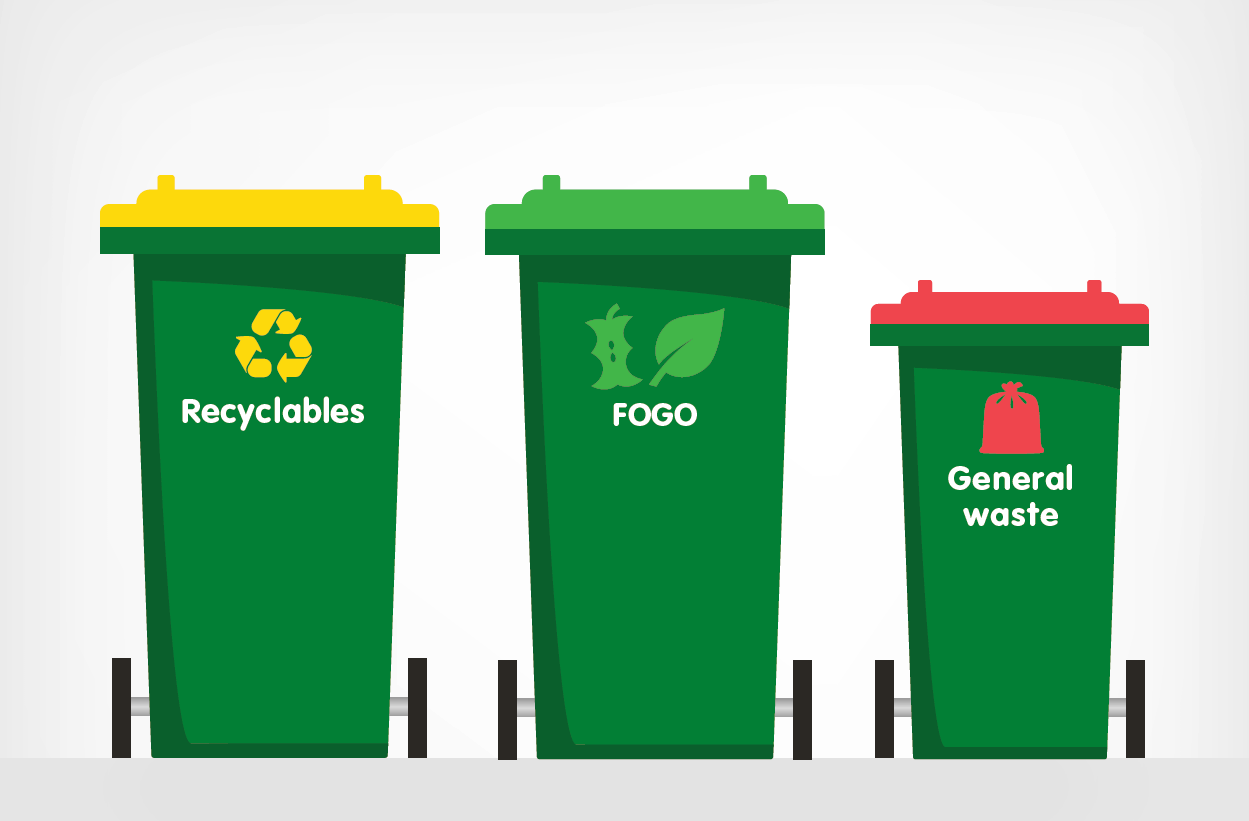
FOGO, Recycling and General Waste FAQs
The Frequently Asked Questions (FAQs) below will help to explain the 3-bin FOGO system and help bust some common myths.
This information is for residents of our five-member Councils located in Perth's Eastern Region: Town of Bassendean, City of Bayswater, Shire of Mundaring and City of Swan.
What does FOGO mean?
FOGO stands for Food Organics Garden organics and refers to the weekly collection of food scraps and garden organics, which can then be turned into compost.
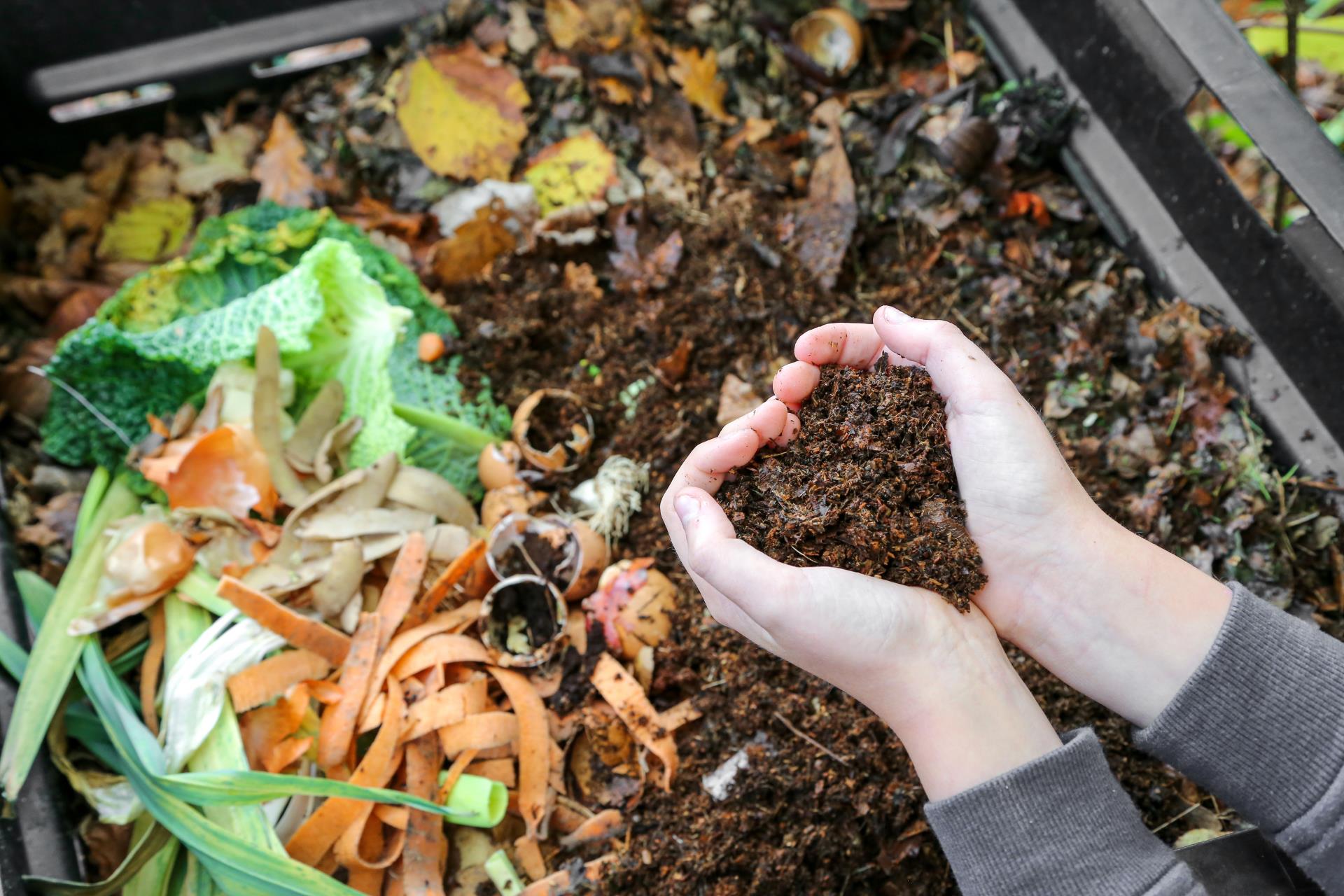
When will the FOGO bin service start?
Service commencement times will vary from Council to Council. You will be advised of the specific start date before the service roll-out.
Due to the large amounts of infrastructure required to be purchased and delivered to households, along with the time needed to construct a large-scale FOGO treatment facility to process this material, all Councils cannot come online at once.
Why is my Council introducing a FOGO bin?
As the population grows, so does the amount of waste generated. We must act on our waste now. The new FOGO bin service will divert a significant amount of organic waste from landfills and turn it into compost. Up to half of the contents in 2-bin General Waste bins is organic material that will be diverted to the FOGO bin.
Organic waste is a problem in landfills as it produces methane, a harmful greenhouse gas that is 25 times more potent than carbon dioxide. Turning it into compost reduces the impact on the environment and allows waste to become a usable product.
The Western Australian State Government have set targets for 65% of waste diverted from landfill by 2025. The 3-bin kerbside system incorporating the FOGO bin will assist Councils and their communities in achieving these targets.FOGO bins have already been successfully introduced in several Local Government areas.
Why are the bin lid colours changing?
Bin lids are changing colour to comply with Australian Standard colours for waste bins. This will assist in delivering consistent messaging across the State and enabling improved source separation and reduced contamination of waste streams.
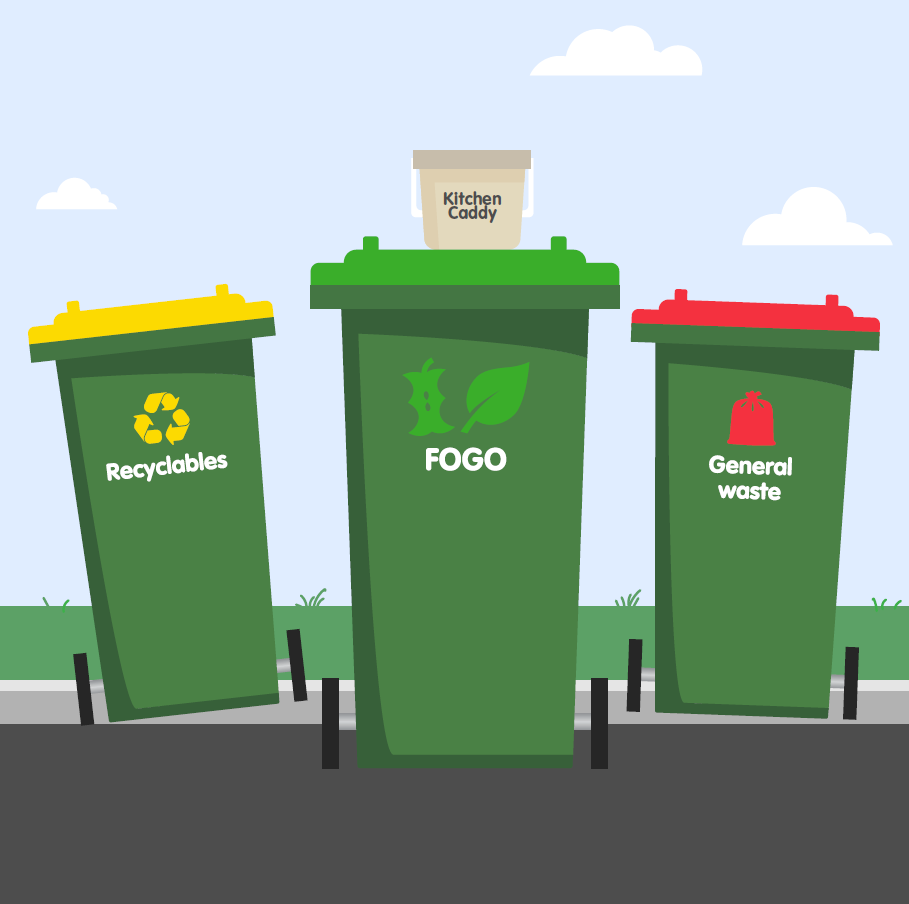
What goes in what bin?
Lime green lid FOGO bin (WEEKLY) FOGO materials include:
Food Organics
- Vegetables and food scraps
- Meat and dairy scraps
- Tea bags and coffee grounds
- Bread
- Seafood including shells
- Food leftovers and scraps
- Eggshells
- Out-of-date food (unpackaged)
Garden Organics
- Grass clippings, plant cuttings, leaves, flowers and weeds, small branches, twigs
Caddy Liners
- Certified Australian Standard compostable caddy liners (look for the seeding logo)
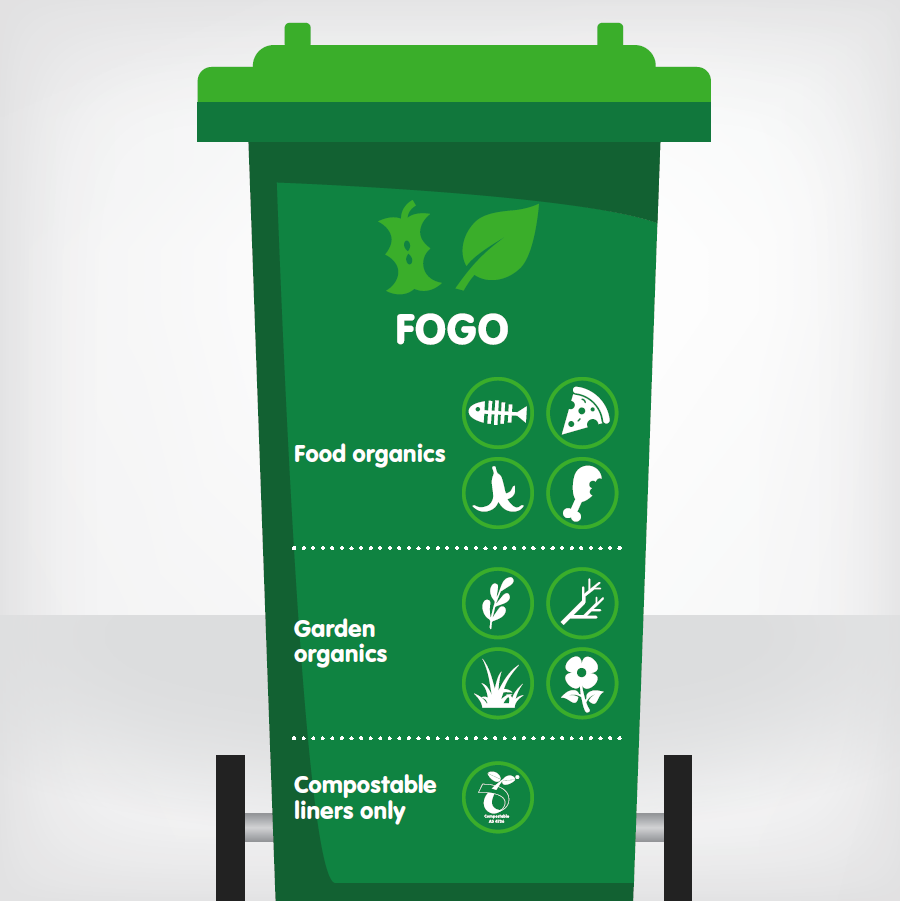
The following items should not be placed into your lime-green FOGO bin:
- Nappies
- General Rubbish
- Hygiene items
- Polystyrene
- Glass
- Soft plastics
- Ropes, straps and hoses
- Soil, bricks or sand
- Hazardous Waste
- Clothing or Textiles
Yellow Recycling bin (FORTNIGHTLY)
Recyclable materials include:
- Paper (excluding shredded paper)
- Clean Cardboard (flattened)
- Glass (clean and empty)
- Plastic containers and plastic bottles (clean and empty)
- Aluminium cans (clean and empty)
- Steel cans (clean and empty)
All items should be clean, dry and empty with lids removed and placed in the Recycling bin loosely.
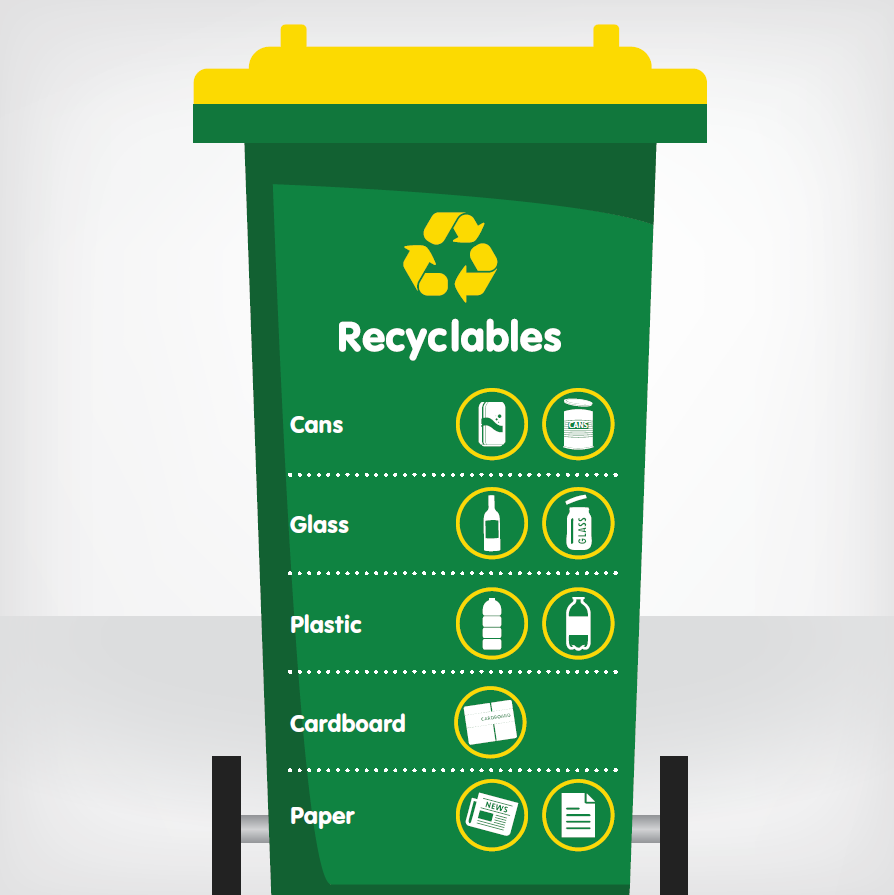
The following items should not be placed into your yellow-lidded recycling bin:
- Soft (scrunchable) plastics, e.g. plastic bags, plastic film and snack wrappers
- Nappies
- Meat trays and polystyrene
- Clothing and textiles
- Garden and food waste
- Electronic waste or Hazardous Waste
- Ropes, cables and hose
- Recycling in bags
- Plastic lids
- Sliver lined cartons
Red lid General Waste bin (FORTNIGHTLY)
General waste that cannot be composted or recycled, such as:
- Nappies
- Meat trays
- Hygiene items
- Polystyrene
- Plastic bags
- Soft plastics
- Ropes, straps and hoses
- Broken textiles/toys that are unfit for donation
- Kitty litter
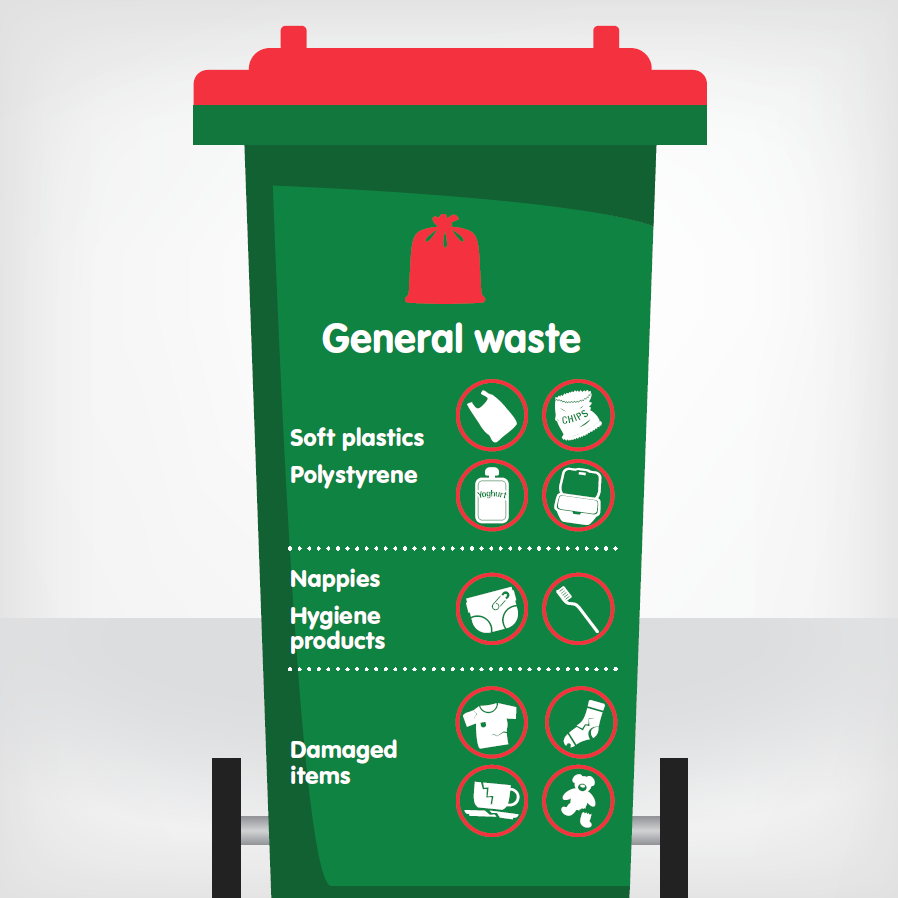
The following items should not be placed into your red lid general waste bin:
- FOGO material (food scraps and garden organics)
- Recyclables
- Hazardous items
What's in it for me?
In future, waste will cost a lot more as taxes on landfills increase, by diverting organic waste from landfills, will save money in the long term.
Do I have to use compostable bags?
If you use bags, they must be compostable - not biodegradable. You don’t have to use bags – you can put things straight in the bin or wrap them in the newspaper.
If buying compostable bags please ensure you look for the seedling logo  Councils supply certified compostable liners with the kitchen caddy at the beginning of the service to your area.
Councils supply certified compostable liners with the kitchen caddy at the beginning of the service to your area.